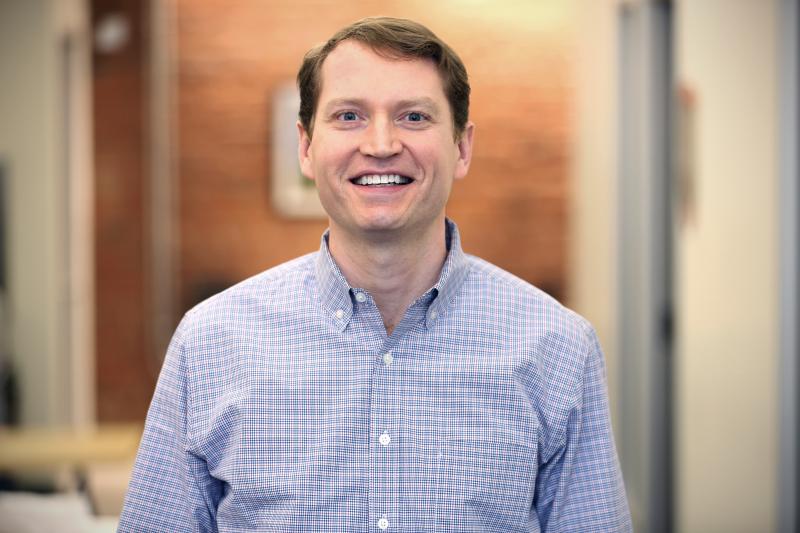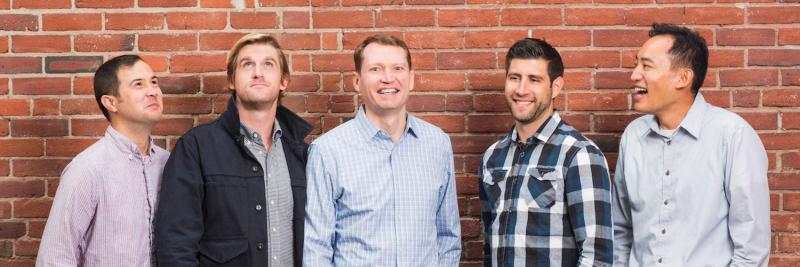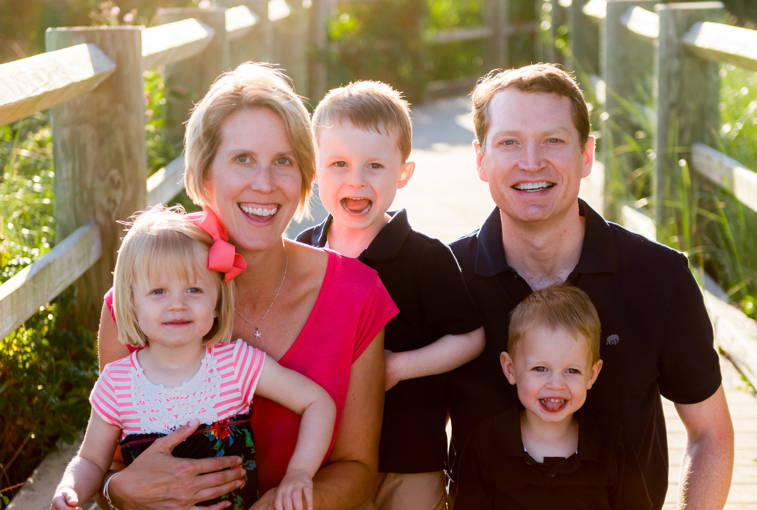David Beisel is a Partner at NextView Ventures, a firm he co-founded with Lee Hower and Rob Go in 2010. They noticed a funding gap for early stage companies, who needed seed capital, but also the same foundation and support that a typical VC firm would provide.
David's impact on the Boston tech ecosystem goes beyond providing entrepreneurs with capital, as he is also the founder of Boston Innovators Group (BIG, formerly known as WebInno). BIG is one of the largest, must attend events in the startup community with a very impressive alumni list of companies who have presented (Dropbox, Birchbox, Reddit, and many more).
Keith Cline: Tell us about your background.
David Beisel: I was born in Pittsburgh, PA and grew up there most of my childhood (except for a few years in Calgary, Canada and Washington DC suburbs). I chose to go to Duke University for undergrad (a 7.5 hour drive from Pittsburgh) because of parental limitations on “going to college within a day’s drive from home,” and also because it was a great school - I felt like the culture was collaborative versus some other schools where the students could be competitive and cutthroat. I started out studying engineering, because I was good at math, but it didn’t end up being the right fit for me. So, I switch my major to economics because there was a good balance between qualitative and quantitative thinking, which if you think of it, applies to what I do today as a venture capitalist.
KC: What did you do for work right out of college?
DB: I joined Parthenon Group, a strategy consulting firm here in Boston, as an Associate. The do a great job at explicitly hiring people with three traits: smart, nice, and hungry. I am proud to be part of the alumni network today which is very impressive.
KC: What led you to the point of starting your own company, Sombasa Media?
DB: It was at Parthenon where I met two of the three co-founders for Sombasa, a consumer facing email marketing company. It was the late 90’s and lots of startups were emerging. Together, we ended up building a company that was focused on email newsletters which offered sales, deals and promotions. We raised $1.1M from what was then called CommonAngels and shortly thereafter, we successfully sold the company in the year 2000 to About.com. Our most popular email newsletter was BargainDog.com, which grew to 5 million registered members.
One of my co-founders was Josh Schanker, who is now the Founder & CEO of BookBub, a company where I’m an investor and a board member. Another co-founder was Elliot Shmukler, who is now the VP, Product at Instacart.

KC: What prompted you to attend business school at Stanford?
DB: After the About.com acquisition, I took a year and a half off and landed in Vail, Colorado, where I became a children’s ski instuctor for a winter. Besides being a venture capitalist, that could be the best job in the world.
I also took some time to cycle solo and unsupported from the southwest tip of England to the northeast tip of Scotland (known as “Land’s End to John O’Groats.”) My journey was about 1,500 miles and it took me a month to complete it. Overall, it was a great experience. It was an adventure because I didn’t have a plan - each day I would just roll into a town and figure out where I was going to stay that night. The irony is that it kind of burnt me out on cycling and I haven’t ridden much since.
I went on to attend Stanford with the intent of starting another company out of business school.
KC: How did you get into the venture capital industry by joining Masthead Venture Partners as a Principal? What portfolio companies did you work with there?
DB: Rich Levandov (now a partner at Avalon Ventures) was on the board for my previous company. They had just raised a fund at Masthead Venture Partners and asked me to join the firm coming out of Stanford GSB. I thought the experience would be perfect for helping me to either launch my own next company or maybe join one of their portfolio companies.
I had never really intended to be a VC because I really saw myself as an entrepreneur, but by three years later, I realized how much I enjoyed the role. It was at that time I was recruited by Mike Tyrell to join Venrock.
Both Rich and Mike have been exceptional mentors to me, as venture is very much an apprentice business. They both have two different investment styles. Rich is intuitive, while Mike is very analytically driven. Both firms were also at different stages, which was useful for me too. Masthead was just getting off the ground and Venrock had been around for 40 years with institutionalized best practices. I still am in regular touch with both Rich and Mike, and they are investors in our fund at NextView Ventures.
KC: You are the founder and organizer of Boston Innovators Group, formerly known as Web Innovators Group. What led you down the path of creating this organization which has become a must attend event each quarter?
DB: I moved back to Boston in 2004 and when I told people that I was an internet entrepreneur, they looked at me like I was cross-eyed. At that point in time, everyone thought the internet was over, but I knew that wasn’t the case. I couldn’t find any events to attend and meet other like-minded people, so I invited a dozen people to Tavern on the Square in Cambridge. We just huddled in the back room and discussed different ideas for starting web companies.
Word spread and the next time we gathered, there was two-dozen people and then 50 people at the next event. Eventually it became the largest tech gathering in Boston and it just happened organically, as I never intended on creating this massive group.
A lot has changed since. If you look across the Boston landscape, there are lots of different events happening every night, which is great for the ecosystem.
KC: After spending over six years in the VC industry, why did you and your partners start a new seed stage investment firm called NextView Ventures?
DB: I knew my partners, Rob Go and Lee Hower, individually before starting the firm. We decided to start NextView because we noticed two trends:
-
Starting companies required less capital.
-
Venture capital firms were raising larger and larger funds, which meant they needed to write larger checks.
Thus, we noticed a mismatch around earlier, seed stage investing where a firm could lead the round and have the same conviction behind the founder like traditional VC firms did.
In 2010, we started working together by investing our own money and made 10 investments. In 2011, we closed our first fund, which is $21M. Today, we are investing out of our second $40M fund, which we announced in the summer of 2014.
Since inception, we’ve invested in 57 companies, with just under half based in Boston and one-third in NYC, where we have a second office and a Principal located. Our investments are split fairly evenly between consumer web & mobile and B2B.
We’ve been fortunate to have three $100M exits over the past few years: GradCAD (Cambridge) was acquired by Stratasys; Sunrise (NYC) was acquired by Microsoft; and TapCommerce (NYC) was acquired by Twitter.

KC: What are the top traits you look for in terms of investing into a company or founder?
DB: The biggest thing we look for is authenticity in a founder. Are they starting a company that was born out of their own true experiences or does the founder have the right fit in terms of his or her background to disrupt an industry.
For example, Eliot Buchanan is the founder of one of our portfolio companies called Plastiq. The idea came from a problem his dad was experiencing trying to pay for his college tuition from outside the U.S. Another example is Eric Groves, co-founder of Alignable, who spent several years at Constant Contact and built out a tremendous amount of expertise for the SMB market.
KC: What sectors of technology, industries, or trends are of interest to you?
DB: Each of us at NextView are generalists. We consider ourselves seed-stage specialists, as opposed to domain specialists, but I tend to focus on eCommerce, SaaS, and marketing tech.
Recently, I’ve been doing a deep exploration into “voice as a user interface.” Tech is moving towards an ever-present voice input computing layer via Amazon’s Alexa, Apple AirPods, Google Home, etc. There are lots of applications for the voice driven computing layer which are going to be uniquely available. Plus, there will be a need for a supporting technology layer for the development of those applications. We haven’t yet announced any investments in this category, but if you fast forward, I bet we’ll have more than a couple over the next couple of years.
KC: Which investments are you involved in at NextView Ventures?
DB: BookBub, which is one of Boston’s quietest fast-growing companies with over 9M members and over 75 employees. Josh Schanker and I were co-founders at Sombasa Media and he’s now the CEO and Co-Founder of the company. BookBub is solving a critical problem in the publishing industry, which was an authentic discovery by Josh and his partner Nick Ciarelli.
Another example, Renoviso, is disrupting the home renovation industry. The founders are growth marketers with a tremendous amount of experience from successful companies like FlipKey, Constant Contact, and BuyerZone.
In NYC, I’ve led our investments in TapCommerce and Code Climate, which offers automated code review for software development teams. I’ll have some more investments in NYC announced shortly.
KC: You have been a very active investor in the Boston tech community for a long time. What excites you about the Boston market and how has it evolved since you’ve been in the venture capital industry?
DB: There’s been some great progress towards openness which didn’t exist when I moved back here in 2004. If someone arrives in the Boston tech scene today, things feel a lot different and the tech community is very welcoming of other people. Plus, there are easier ways to navigate through the Boston tech scene with VentureFizz, the Hitchhiker’s Guide to Boston Tech, and Jeff Bussgang’s Boston tech presentation.
Although there has been progress, I still feel like we could be doing an even better job at helping first time founders raise capital and making the local angel investment community more accessible. It has definitely improved, but we still have a way to go.
KC: Which companies outside of your portfolio in the Boston area do you find interesting?
DB: I think Quantopian is very interesting in terms of how they are democratizing Wall Street and the hedge fund industry.
KC: Greatest misses - what company(ies) have you passed on that you wish you hadn’t?
DB: For me, it was Dropbox and Birchbox. Both companies participated at Web Innovators Group and I did spend some time with Drew Houston and evaluating Dropbox as an investment. We as a community (Boston investors) definitely let that one get away.
KC: Outside of being a VC, what are you personal interests or activities?
DB: I’m married and have three kids - 4.5 year old son and a set of 3 year old twins. I’m an avid runner and I love skiing in the winter.
KC: What type of music do you like?
DB: I tend to listen to a lot of Indie music, bands like Whitney and Pine Grove. Although, I’m embarrassed to admit this, but I have been listening to more and more country music recently. My kids enjoy singing along.
I’m probably the most avid listener of music in my firm, but the irony is that I have a strong bias against making investments into music startups. It is such a tough industry to crack.
Keith Cline is the founder of VentureFizz. Follow him on Twitter: @kcline6.

